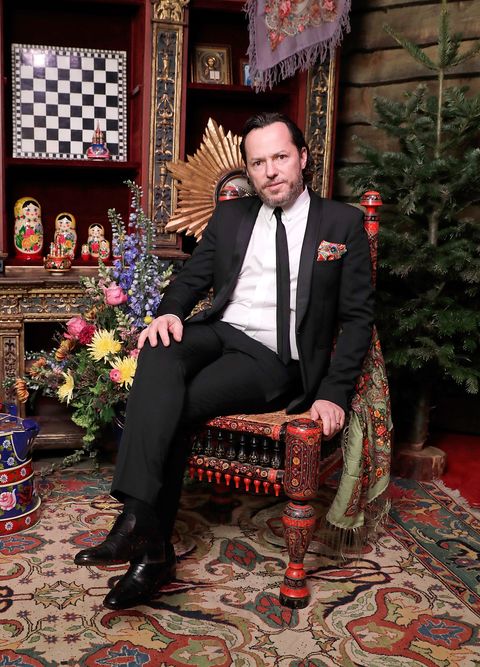Shortly before fears of COVID-19 swept through this spring’s Fashion Week, fashion show production maestro Alexandre de Betak was already reexamining his business model. Famous for his transporting work for the likes of Dior, Rodarte, and Jacquemus, de Betak released a statement declaring that shows must be smaller, more sustainable, and more digital. The pandemic only sped up those mandates. “Due to environmental concerns, my current focus is on testing new digital platforms,” de Betak says.“But by next year, we’ll be pretty happy to have experiences again, albeit more intimate [ones].”
The question of what those reimagined shows will look like is one that has been bedeviling the entire industry—and has accelerated existing conversations about changing the fashion show system. Between the carbon footprint of international travel, elaborate single-use sets, and a calendar many designers feel doesn’t make sense, the status quo could use some improvement. In Milan, Gucci’s Alessandro Michele has announced that he is permanently abandoning the traditional schedule, while in New York, Michael Kors, Tom Ford, and Ralph Lauren have bowed out of showing during the regular NYFW schedule. (Paris Fashion Week is, by and large, going ahead as planned as of press time.) Some of the most innovative ideas are emerging from younger talents who are keen to embrace new technologies and less tied to the idea of a traditional show. Anifa Mvuemba held her recent show for her line, Hanifa, virtually via Instagram Live: The garments appeared in 3-D, moving across the screens of tens of thousands of viewers, as if worn by invisible models. And instead of holding a show in the fall, Pyer Moss’s Kerby Jean-Raymond will screen a documentary, American, Also, at a drive-in theater.
Others feel that fashion shows as we know them are, in the long run, here to stay—albeit with some changes. Giorgio Armani was one of the first to spring into action in February, eschewing physical guests at his show and quickly switching to a digital format.“I believe that there will always be a place for a performative approach to fashion, where you show your work to the world. What form that takes, ultimately, is the question here,” the designer says. “Going fully virtual is not a good solution, I think…. What I am sure of is the need to do less and to do it better. In the future, I believe that brands will think carefully about staging lavish events unless there is a genuine reason for doing so.”
See ELLE’s full package on the future of fashion here.
This article appears in the September 2020 issue of ELLE.
This content is created and maintained by a third party, and imported onto this page to help users provide their email addresses. You may be able to find more information about this and similar content at piano.io







